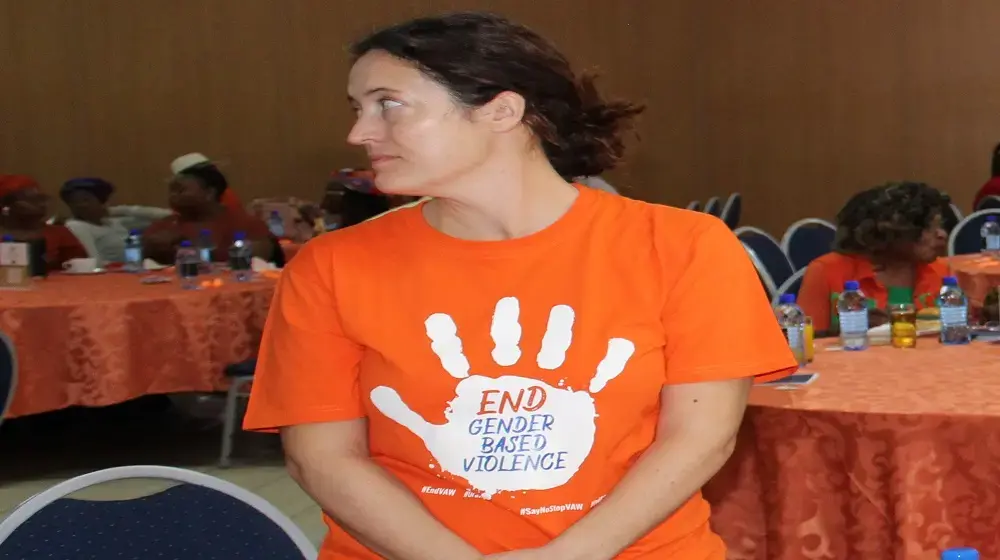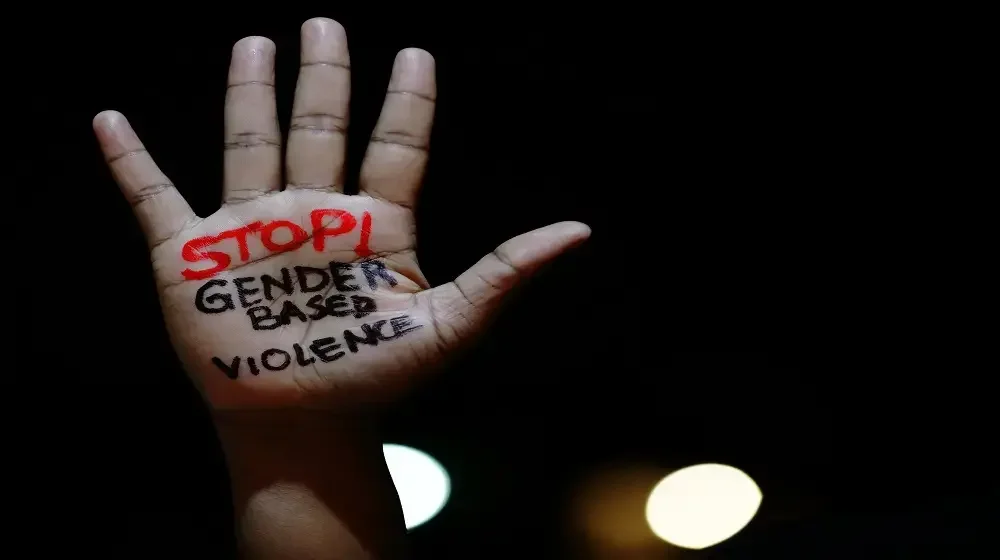Honourable Tšita Mosena is deeply concerned that gender based violence (GBV) is too rife in Lesotho, and notes that ,“It is deeply rooted and needs to be addressed from the systemic appreciation. It’s perpetuated by men and women alike and need not be tolerated or excused,” she states, adding, “we must deeply focus on root causes and not only deal with symptoms. It is not regressing and hopefully the Domestic Violence Bill will help bring justice to the fore as victims find themselves helpless and continue to be victimised.”
She was made to realise that Lesotho is not exceptional in her experience of the pervasiveness of GBV after participating in the International Conference on Population and Development (ICPD) held in Nairobi, Kenya in 2019. The Nairobi ICPD 25 Summit “Accelerating the Promise,” came 25 years after the landmark ICPD held in Cairo, Egypt in 1994, which culminated in a global agreement that sexual and reproductive health and rights are a necessity for growth and prosperity. The Member of Parliament in Lesotho’s National Assembly and Deputy Leader of the Movement for Economic Change (MEC) Party, she has since recognized and appreciated that there is so much that has been done yet there is still more that needs to be done to recognise the rights and sexual and reproductive health needs of everyone, especially women and adolescents and strongly feels gender-based violence should be uprooted. “I appreciated more the importance the summit placed on the rights and choices that have to be respected, and gender equality, equity and the empowerment of women which must be ensured in order to achieve progress,” she elaborates.
The Hon. Tṧita Mosena was among the more than 150 country countries that committed to:
- accelerating implementation of the ICPD agenda and to attaining UNFPA, the United Nations Population Fund’s three transformative results;
- Ending Preventable Maternal Deaths,
- Ending the Unmet Need for Family Planning and
- Ending Gender Based Violence and harmful practices.
As an MP and Leader Tsita Mosena is better placed to voice the commitments including ending GBV and harmful practices. The opportunity for her presented itself in the tabling and first reading of the Domestic Violence Bill in Parliament in 2021, amid cheering and ululations mostly from her fellow female Members of Parliament.
Speaking about harmful practices in Lesotho, particularly child marriage, a phenomenon she has always been very vocal against, and sees as violation of women’s rights and perpetuation of patriarchal culture says,
“This has been considered wrong all the time. Having seen how young girls suffer or have their future derailed by what they don’t understand or agree to is a source of my discomfort. This is one area that continues to override girls’ human rights with unacceptable acceptance. Patriarchy has perpetuated this practice, and continues to propel it in the wrong direction for as long as societal and cultural norms don’t change. We should ban the use of [the notion of] “child marriage” and replace it with “child rape”. She emphatically declares “It must end.”
“The inability to voice ourselves for fear of saying all the wrong things or being misrepresented keeps us quiet.”
Honourable Tsita Mosena most often, advocates for the rights and voice of the marginalised especially women and girls. The MP’s view is that there are many reasons making women fearful to be in leadership or in public spaces in Lesotho. “The inability to voice ourselves for fear of saying all the wrong things or being misrepresented keeps us quiet. The refusal to focus on substantive matters regardless of tireless efforts one makes [as a Leader], renders the journey more difficult,” she says.
This female member of Parliament feels that being labelled for actually being woman, and for one’s looks as well as accused of portraying femininity in the way they see comfortable is downright insulting. Confidently she posits “However, I say, as all these happen, that’s when we’re moulded to be stronger, keep our heads higher and keep fighting for that voice of the voiceless, and keep working towards being respected for who we are and what we stand for.”
She continues,
“We cannot keep quiet or hide in our little corners anymore just because we have been named and shamed for the wrong reasons. I speak for all who have been thrown aback by being bashed at. All who have been laughed at and felt helpless, crying in their private spaces yet being strong for everybody else. I speak for all who have been challenged, bullied, attacked, embarrassed and made to feel that they are worthless . I speak for all who have been disrespected or attracted attention for all the wrong reasons. I speak for all who dare not have their say because they feel trapped or that it’s too risky and they may be singled out, or are already targeted.”
Tṧita Mosena urges women in Lesotho to persevere be strong, make their voices heard in whatever they do including eradicating GBV. In her inspiring voice she asserts that,
“I speak for all, particularly women, to keep doing what’s right, to have their say, take charge, lead and contribute in shaping our families, workspaces and communities ...and to keep being proud that they’re who they’ve become. Obviously, we still have a long road ahead. I say to them... this too shall pass. Let’s make peaceful yet thriving nation our continued agenda. Keep fighting the worthy fight and cheer on.”
The biggest challenge she ever faced, she says, was when she had to make a life changing decision of whether or not to join politics.
“Having worked very hard for our brand and knowing the fragility of tarnishing it, one had to determine if that extremely high reputation risk outweighed the potential change one could bring into the political, economic and leadership space in Lesotho. The answer was yes, it was time to stop complaining as a spectator but become part of the solution,” she stated.
She confidently says her philosophy in life, is, “the difference between “who you are and what you wish to become is what you do”. This is the driving factor towards everything we achieve. Goals will only remain lovely dreams until we act on them”. This she says. helps her craft means of getting to her goals knowing if she does not move, nothing will happen.
A mother of two, who once worked in Paris France is also an entrepreneur. She is a twin sister likes spending time with her family, “and just being “me” in my simplest form, being a mother, wife and sister away from gazing eyes, judgement and societal expectations.” Also, a twin sister Hon. Tšita Mosena concludes her story explaining that,
“It was the realisation that being a twin embeds an important lesson, that we all have opposing views as we journey our lives and there’s a never-ending internal battle within each of us, towards distinguishing or extinguishing us. We always have to make a choice of which side we’re magnifying against the one we’re suppressing.”





